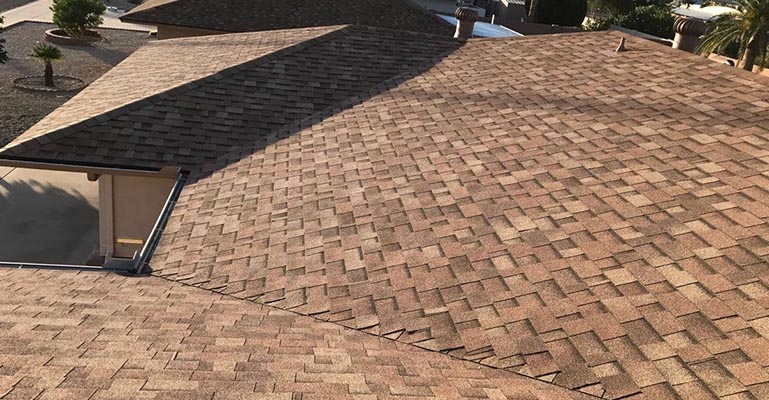- Home /
- Blog
Warranties
Roof Warranties Explained

Roof Warranties
A roof warranty is only as good as the company that backs the warranty. Generally, there are two types of warranties when you have your roof replaced, workmanship and material.
Workmanship Warranty
AWorkmanship is often covered by the roofing contractor. The roofing contractor that installs your roof will typically extend a workmanship warranty on average of 1–5 years. A workmanship warranty covers error in workmanship and installation but is only good if the contractor stays in business.
Material Warranty
Material defect is covered by the manufacturer. The fine print of a material warranty can be limited to time, maintenance, and transferability. Many manufacturers vet installers and base the type of warranty an installer can offer by experience level, number of jobs performed and continuing education, among other qualifiers.
Important Factors
What is the length of the warranty? Shingle roof manufacturers warranties offer anywhere between 10–30 years. Keep in mind that manufacturer warranties cover product defect and not weather damage or normal wear and tear.
Most material manufacturer warranties are prorated. This is a very important aspect of a material warranty coverage. For example, a prorated asphalt shingle roof warranty may be covered by a 25-30 year warranty, most of these long-term warranties are prorated after the first few years. They may cover one hundred percent of the of defective shingles for five or ten years. But after that, many warranties cover only a dwindling percentage of the cost. Therefore, annual roof inspection is very important for protecting your assets and keeping an up-to-date inspection log. This will protect the homeowner from costs associated with any material defects that can be covered by the manufacturer and can keep the homeowner informed if any maintenance repairs are needed to keep their new roof and warranty in good standing.
Can the roof warranty be transferred?
A transferable roof warranty can be valuable when selling your home. Potential buyers will appreciate the peace of mind a roof warranty can bring. Ask your installer if both workmanship and material warranties can be transferred with the sale of your home. This can also increase the value of your property when time to sell.
Things That Can Void Your Roof Warranty
Certain types of construction can really damage your roofing system. For example, if your tenants added mechanical equipment that penetrates the roof structure — such as adding additional air conditioning capacity, ventilation for new machinery or items related to renovations, especially bathrooms — your roofing system may have been compromised. Elements that go through the system need to be properly installed by professionals who are trained in proper flashing techniques.
If your home has a low-sloped roof, chances are it has rooftop air conditioning unit that should be regularly serviced by authorized technicians. This means that service technicians can inadvertently drop tools, step on screws or spill chemicals as they go about their work.
Unauthorized installation of solar units without inspection can also void your roof warranty.
To avoid these problems, schedule annual roof maintenance and inspection visits to align with authorized contractor work. And if any of the work includes elements that go through the roofing system, coordinate with your roofing contractor so they can be there while the work is being done or inspect after the work has been completed.
Give us a call today if you have any questions about your home roof warranty or would like to schedule your annual roof inspection.
Next Generation Roofing LLC, where integrity is the cornerstone of our business.